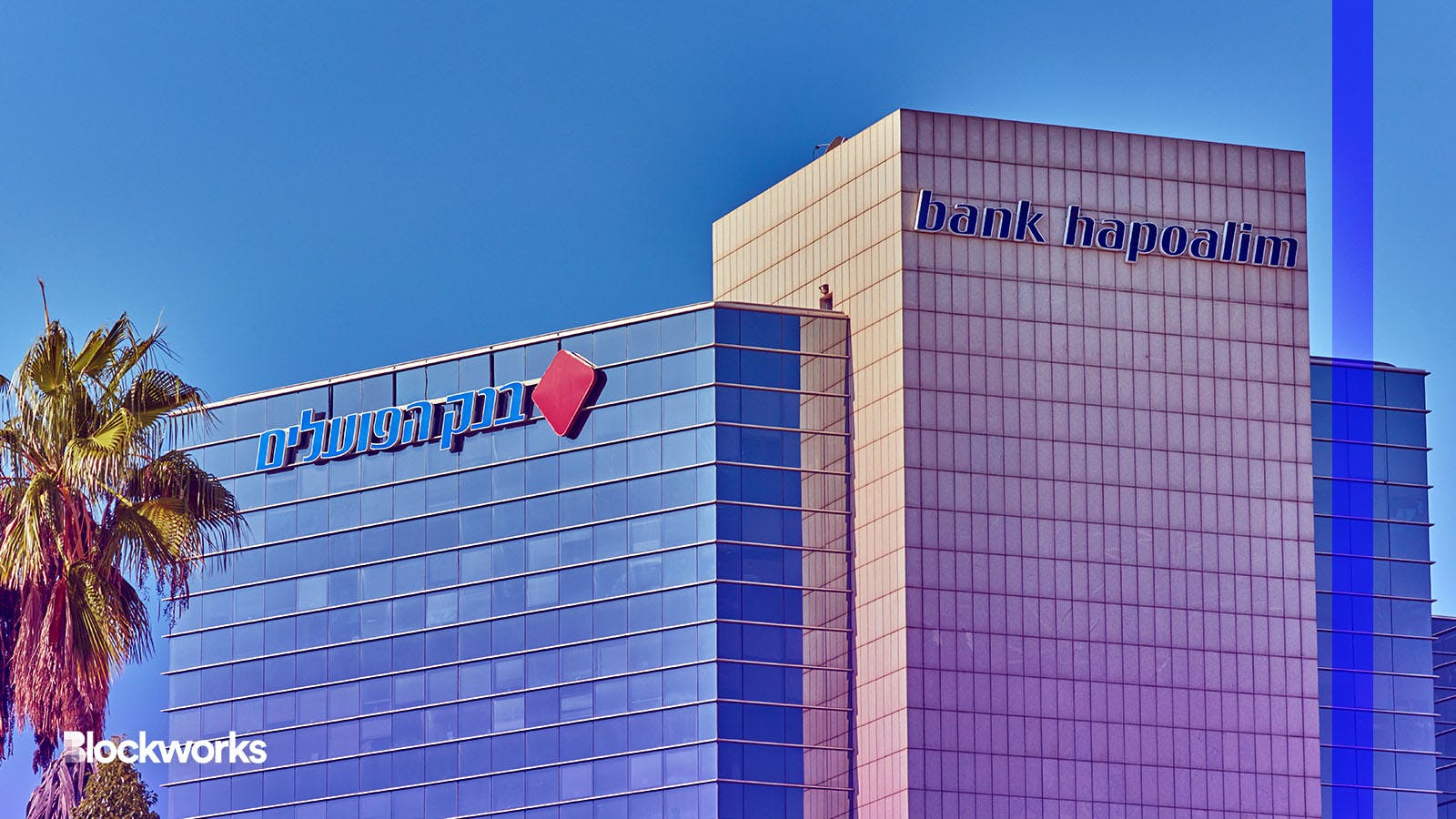Israeli retiree made $270K in BTC profits. Her bank wouldn’t take her money.
Israel’s Bank Hapoalim initially denied Freeman, a 40-year customer, the ability to deposit $273,000 in profit realized from a bitcoin investment made in 2013

rasika108/Shutterstock, modified by Blockworks
An Israeli pensioner and the country’s second-largest commercial bank have agreed to dismiss a long-running case involving substantial profit from a bitcoin investment made ten years ago.
Esther Freeman, a 70-year-old retiree, and Bank Hapoalim agreed to drop the case after reaching an agreement, with each party paying their own legal fees, local media reported Saturday.
The terms of the agreement were not disclosed. The bank did not immediately return Blockworks’ request for comment.
The settlement ends a two-year legal tussle in which Freeman sued the bank in 2021 for denying her the chance to deposit her bitcoin proceeds, which had ballooned to more than 100 times her initial investment. Since filing her claim, bitcoin has dropped more than 50%.
Freeman invested NIS 10,000 ($2,700) in bitcoin (BTC) in 2013 using cash through a third party, at a time when digital asset exchanges were virtually non-existent. By July 2021, with bitcoin trading at around $58,000, her investment was worth close to NIS 1 million ($273,000), per the report.
In its defense, the bank argued it was doing so under the provision of newly established regulations and that Freeman’s purchase was not undertaken from a regulated or monitored entity, but rather from a private person in cash.
In reaction to increased customer transactions in digital assets, the Bank of Israel’s Banking Supervision Department introduced a draft regulation last year attempting to address AML/CFT concerns.
The regulation mandates banks conduct appropriate risk assessments, set policies and trace a digital asset’s trajectory from acquisition to fiat.
Under those rules and according to the bank, “it is not possible to trace the money path in relation to the purchase of the [bitcoin]” and “only in cases where the funds used to purchase the virtual currency were withdrawn and received in the same account can the receipt of the funds be approved.”
Get the news in your inbox. Explore Blockworks newsletters:
- The Breakdown: Decoding crypto and the markets. Daily.
- 0xResearch: Alpha in your inbox. Think like an analyst.






